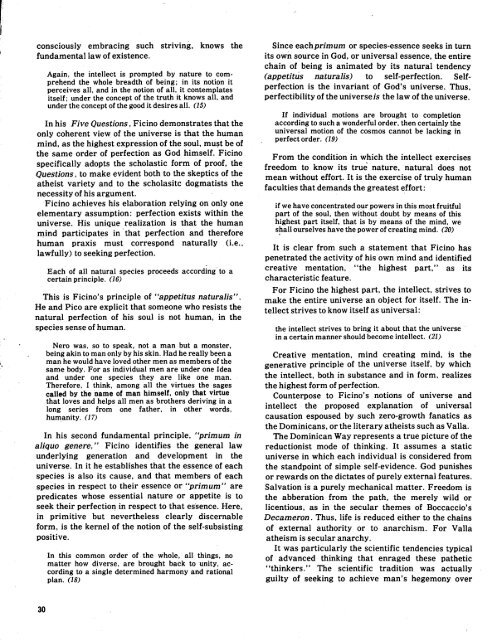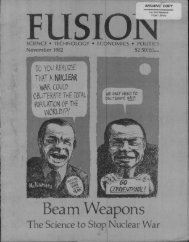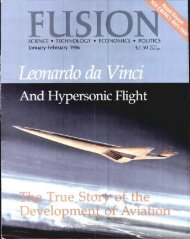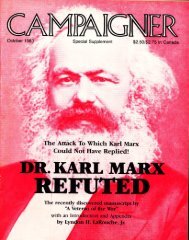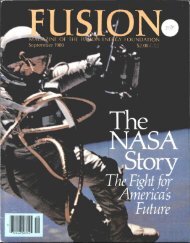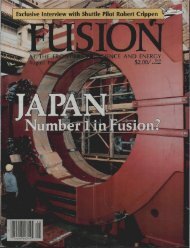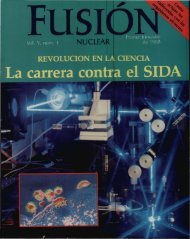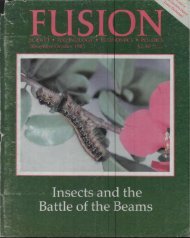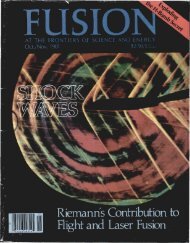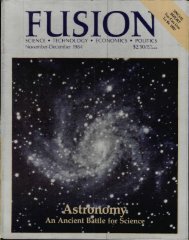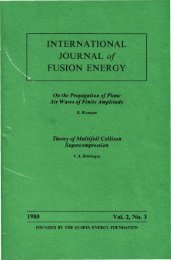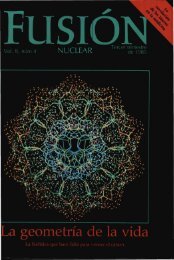Renaissance and
Renaissance and
Renaissance and
Create successful ePaper yourself
Turn your PDF publications into a flip-book with our unique Google optimized e-Paper software.
consciously embracing such striving, knows the Since eachprimum or species-essence seeks in turn<br />
fundamental law of existence, its own source in God, or universal essence, the entire<br />
chain of being is animated by its natural tendency<br />
Again, the intellect is prompted by nature to cornprehend<br />
the whole breadth of being; in its notion it<br />
(appetitus naturalis) to self-perfection. Self-<br />
perceives all, <strong>and</strong> in the notion of all, it contemplates perfection is the invariant of God's universe. Thus,<br />
itself; under the concept of the truth it knows all, <strong>and</strong> perfectibility of the universeis the law of the universe.<br />
under the concept of the good it desires all. (15)<br />
If individual motions are brought to completion<br />
In his Five Questions, Ficino demonstrates that the according to such a wonderful order, then certainly the<br />
only coherent view of the universe is that the human universal motion of the cosmos cannot be lacking in<br />
mind, as the highest expression of the soul, must be of perfect order. (19)<br />
the same order of perfection as God himself. Ficino From the condition in which the intellect exercises<br />
specifically adopts the scholastic form of proof, the freedom to know its true nature, natural does not<br />
Questions, to make evident both to the skeptics of the<br />
mean without effort. It is the exercise of truly human<br />
atheist variety <strong>and</strong> to the scholasitc dogmatists the faculties that dem<strong>and</strong>s the greatest effort:<br />
necessity of his argument.<br />
Ficino achieves his elaboration relying on only one if we have concentrated our powers in this most fruitful<br />
elementary assumption: perfection exists within the part of the soul, then without doubt by means of this<br />
universe. His unique realization is that the human highest part itself, that is by means of the mind, we<br />
mind participates in that perfection <strong>and</strong> therefore shall ourselves have the power of creating mind. (20)<br />
human praxis must correspond naturally (i.e., It is clear from such a statement that Ficino has<br />
lawfully) to seeking perfection, penetrated the activity of his own mind <strong>and</strong> identified<br />
creative mentation, "the highest part," as its<br />
Each of all natural species proceeds according to a<br />
certain principle. (16) characteristic feature.<br />
For Ficino the highest part, the intellect, strives to<br />
This is Ficino's principle of "appetitus naturalis", make the entire universe an object for itself. The in-<br />
He <strong>and</strong> Pico are explicit that someone who resists the tellect strives to know itself as universal:<br />
natural perfection of his soul is not human, in the<br />
species sense of human, the intellect strives to bring it about that the universe<br />
in a certain manner should become intellect. (21)<br />
Nero was, so to speak, not a man but a monster,<br />
being akin to man only by his skin. Had he really been a Creative mentation, mind creating mind, is the<br />
, man he would have loved other men as members of the generative principle of the universe itself, by which<br />
same body. For as individual men are under one Idea<br />
<strong>and</strong> under one species they are like one man. the intellect, both in substance <strong>and</strong> in form, realizes<br />
Therefore, I think, among all the virtues the sages the highest form of perfection.<br />
called by the name of man himself, only that virtue Counterpose to Ficino's notions of universe <strong>and</strong><br />
that loves <strong>and</strong> helps all men as brothers deriving in a<br />
long series from one father, in other words, intellect the proposed explanation of universal<br />
humanity. (17) causation espoused by such zero-growth fanatics as<br />
the Dominicans, or the literary atheists such as Valla.<br />
In his second fundamental principle, "'primum in The Dominican Way represents a true picture of the<br />
aliquo genere,'" Ficino identifies the general law reductionist mode of thinking. It assumes a static<br />
underlying generation <strong>and</strong> development in the universe in which each individual is considered from<br />
universe. In it he establishes that the essence of each the st<strong>and</strong>point of simple self-evidence. God punishes<br />
species is also its cause, <strong>and</strong> that members of each or rewards on the dictates of purely external features.<br />
species in respect to their essence or "primum" are Salvation is a purely mechanical matter. Freedom is<br />
predicates whose essential nature or appetite is to the abberation from the path, the merely wild or<br />
seek their perfection in respect to that essence. Here, licentious, as in the secular themes of Boccaccio's<br />
in primitive but nevertheless clearly discernable Decameron. Thus, life is reduced either to the chains<br />
form, is the kernel of the notion of the self-subsisting of external authority or to anarchism. For Valla<br />
positive, atheism is secular anarchy.<br />
It was particularly the scientific tendencies typical<br />
In this common order of the whole, all things, no of advanced thinking that enraged these pathetic<br />
matter how diverse, are brought back to unity, according<br />
to a single determined harmony <strong>and</strong> rational "thinkers." The scientific tradition was actually<br />
plan. (18) guilty of seeking to achieve man's hegemony over<br />
3O


